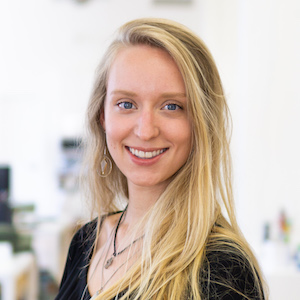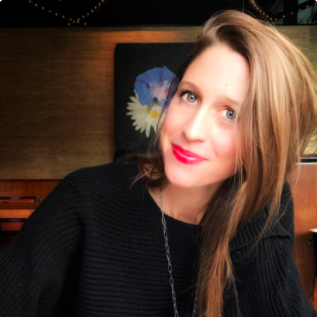This year, Deakin University and Smart Sparrow have come together to host the Learning Innovation Summit 2017 (#LIS17): Fresh Solutions to Old Problems. The event is happening on 21 July 2017 in Melbourne, Australia.
The Learning Innovation Summit is a solutions-driven conference designed to inspire and equip you with the tools to dramatically improve student learning. You’ll experience learning innovation first-hand with speakers pushing the boundaries of higher education, live teaching & learning demonstrations, and hands-on professional development workshops.
*Special thanks to our sponsors and partners in holding and planning the event: UNSW Sydney, the BEST Network, and EduGrowth.
The education event that focuses on practice, not theory
This year, the summit is focusing on addressing age-old challenges in higher education, to help you find much-needed solutions: increase retention & completion; update one-size-fits-all classroom learning; teach real-world employability skills while focusing on traditional learning goals; provide more authentic learner assessment; create pedagogical accountability; maintain quality alongside “scale and access” of learning experiences; fix credential inflation, i.e. degrees as the only “valid” credential; measure the ROI of innovation for universities; and more.
If you want to explore innovative learning solutions and teaching practices that are improving student outcomes, we hope to see you in July.
5 reasons to attend the Summit
- Catch up on current teaching & learning research and technologies.We carefully selected leaders in the field that are believe in change, improvement, and progress. They will share insights, challenges others are facing, solutions others have found, and what’s working at their institutions.
- Move past theory and get step-by-step processes for implementing real change.Just ideas and theories are useless if we can’t implement them today – that’s why LIS has been designed so you walk away from each session with tangible strategies that you can replicate in your teaching or at your institution.
- Pair trending ideas with real examples to inform your own practice. We’ve asked every speaker and facilitator to keep this conference focused on the practical side of learning innovation. The day is packed with 15-minute talks and presentations featuring real-life projects that will share insights into how different institutions identified prevalent problems and successfully implemented innovative solutions.
- Participate in hands-on workshops and skill up on innovative practices.Workshops are an opportunity to dive deep into innovative learning solutions already in practice in facilitated groups. If you’d like to get better at designing course experiences by taking a learner-centred approach, or learn how to blend the real-world with online to provide immersive and engaging learning moments, join one of the four workshops.
- Network with innovative colleagues, and meet other educators like yourself that care. As educational leaders, it’s our responsibility to work together to model ideal teaching & learning, champion research in the field, and continually bring innovative solutions into the spotlight. We need to keep moving beyond “just the talk” and push education continually forward.
Join us for a full day of exciting sessions!
The Learning Innovation Summit is a full day of learning and discussion with educators from around Australia and the globe. You can find the full program on the LIS17 event page. Here are more details on our keynote, panel discussion, and workshops.
➝Morning Keynote: “Higher Ed’s Innovation Dilemma: Move Faster Together, or Go Slow Alone”
About the Speaker: For the past decade, Dr. Bridget Burns has advised university presidents, system chancellors, and state and federal policy leaders on strategies to expand access to higher education, address costs, and promote completion for students of all backgrounds. Named one of the “16 Most Innovative People in Higher Education” by Washington Monthly, she is the founding Executive Director of the University Innovation Alliance (UIA).
Keynote Abstract: Across the globe, universities are grappling with diverse and complex challenges, forcing them to look beyond their campus for new ideas and inspiration. Recognising there is power in numbers, 11 of the largest public research universities have come together to innovate. They’ve recognised that one particular technology or best practice won’t suffice; but improving the way that technologies and new solutions are shared and scaled throughout the sector has the potential to fundamentally change the way colleges and universities serve both students and society. To that end, the University Innovation Alliance (UIA) has convened some most innovative college presidents to reinvigorate higher education’s commitment to public good. In this keynote, UIA founding executive director Bridget Burns will share lessons learned from the UIA’s work to develop, test, and scale new innovations that are helping the universities dramatically increase the number of low-income students that are graduating from college.
Come hear why collaboration might be education’s most powerful innovation yet.
➝Panel discussion bringing academia and industry together
Does innovation actually help us solve problems, or does it distract us from more practical conversations? This year’s panel at LIS17 is an opportunity for dialogue between universities, industry, and technology providers. Join us for a discussion that moves beyond buzzwords to understand the promise of modern learning innovation and what else we can do to move the needle on improving student success.
Join us right before lunch to ask your questions and hear from:
- Prof. Geoffrey Crisp, Pro-Vice Chancellor of Education at UNSW Sydney
- Dr. Bridget Bruns, Executive Director, University Innovation Alliance
- Prof. Jonathan Powles, Pro Vice Chancellor Academic Innovation at University of New England
- Dr. Dror Ben-Naim, Founder of Smart Sparrow adaptive learning technology
- Simon Hann, CEO at Deakin Co.
- Maria Spies, Head of Learning Design at Navitas
- With panel MC: Tim Dodd, Education Editor at the Australian Financial Review
➝Hands-on workshops about innovative learning solutions
In the afternoon, you’ll have a chance to participate in one of our four hands-on workshops that focus on innovative practices in higher education, from virtual reality to designing “smart” courses with the help of technology. What skill set are you most interested in building? Once you register to attend LIS17, we’ll ask you to fill out a form and let us know which workshop you’d like to join.
Option 1: Education Through Exploration: Creating Engaging Learning Journeys (BYOD)
Facilitators: Prof. Ariel Anbar and Diana Hunsley, Center for Education Through eXploration, Arizona State University
Duration: 3hrs
Join us to examine a new learning philosophy that embraces exploration of the unknown, not just mastery of what is known, and the technologies that make it possible, online, at scale — Education Through eXploration (ETX). This workshop is a special sneak preview of a new professional development certificate program offered through Arizona State University. To fully participate in this workshop, please “Bring Your Own Device”.
3 key takeaways:
- Understanding of the background, need for, and outcomes of the Education Through eXploration (ETX) philosophy.
- Principles the ETX Center uses to design digital learning experiences.
- Complete Stage 1 of the 3-stage Professional Development certificate program, the remainder of which will be available online in January.
Option 2: Bringing Embodied Learning to Higher Education with VR
Facilitator: Jennifer McKenzie, Lead Engineer, Smart Sparrow
Guests: A/Prof. Helen Forbes, School of Nursing and Midwifery, Deakin University; Dr. Ben Horan, CADET Virtual Reality (VR) Director, Deakin University
Duration: 1.5hrs
Exciting advancements are happening in virtual reality, many of which are actually happening in the education space. VR is an example of Learning Innovation that can completely transform the way we learn something. It helps students comprehend complex and abstract concepts, or enables learn-by-doing for physically impossible situations. This workshop will activate your sensory neurons, and show you how VR can help you create more meaningful learning environments.
3 key takeaways:
- Understanding of the current VR landscape: devices, costs, challenges to adoption, and more.
- Knowledge of how to use VR to create more meaningful learning experiences.
- First-hand experience with VR in higher ed that brings abstract concepts to life: Inspark’s “Into The Cell” VR Experience and Deakin’s Virtual Reality Intrapartum Touch Trainer.
Option 3: Borrowing What Works: Designing Digital Learning Experiences (BYOD)
Facilitator: Dr. Martin Van de Weyer, Senior Learning Designer, Smart Sparrow
Duration: 1.5hrs
How can we borrow from a range of experiences outside of traditional learning (cinema, architecture, theatre/storytelling, digital games, branding/marketing) to create more engaging learning experiences? This interactive workshop draws from multiple areas to outline Learning Experience Design techniques that you can employ to turn your content into rich and adaptive learning experiences. To fully participate in this workshop, please “Bring Your Own Device”.
3 key takeaways:
- How to draw from experiences outside of traditional learning to create more engaging and meaningful learning experiences.
- Learning design techniques for engaging learners and unpacking content, such as Hooks & Signposting, Memory Anchors, Mentor Characters, and more.
- Ability to incorporate these techniques into a lesson using the Smart Sparrow authoring platform.
Option 4: Innovative Teaching Solutions in Biomedicine
Facilitators: Prof. Nick Hawkins and Stephanie Dowdell, BEST Network
Guests: A/Prof. Kristine Elliott, University of Melbourne; Dr. Angela Finch, UNSW Sydney; Joanne Russell, University of Melbourne
Duration: 1.5hrs
Explores innovative solutions to several common challenges specific to biomedical disciplines. It includes short presentations followed by hands-on tips for implementation in your own classes. Topics discussed will include: automating assessment, preparing students for practical classes, supporting the use of technology in a clinical setting, and transforming pathology classes with virtual microscopy.
3 key takeaways:
- Information on how BEST’s adaptive and personalised solutions are revolutionising biomedical education.
- Exploration of shared resources and tools, like Slice, which you can use to change the way you teach “visual” disciplines.
- Research-based strategies and best practices from institutions that strengthened their online biomedical offerings.
➝5 innovative startups joining the Summit
Higher education is widely regarded as a vehicle for driving innovation. We’ve been working with EduGrowth, a partnership between several higher education institutions to foster startup growth, and together we hand-picked 5 startups to join us at the Summit and share their innovative learning solutions. Here are the organisations that will be joining us:
- CollabHero: offers a comprehensive platform to enable collaboration and peer feedback in new age classrooms.
- Vygo: a mobile platform connecting students with the peer tutors they need, at a price they can actually afford.
- MoodMission: an evidence-based app that helps students overcome low moods and anxiety to improve their mood and wellbeing.
- mPath: a virtual reality education system that simulates the experience of psychotic disorders to promote better understanding of psychosis.
- Next Generation Rubric: helps students improve written assessments, resulting in greater student confidence and success.
See you at #LIS17
If you have any questions about the event before we see each other in Melbourne, contact our committee at events@smartsparrow.com.


